French Administrative Supreme Court illegitimately buries the debate over internet censorship law
In November 2023, EDRi and members filed a complaint against the French decree implementing the EU regulation addressing the dissemination of 'terrorist content' online. Last week, the French supreme administrative court rejected our arguments and refused to refer the case to the Court of Justice of the European Union.
Filter resources
-

French Administrative Supreme Court illegitimately buries the debate over internet censorship law
In November 2023, EDRi and members filed a complaint against the French decree implementing the EU regulation addressing the dissemination of 'terrorist content' online. Last week, the French supreme administrative court rejected our arguments and refused to refer the case to the Court of Justice of the European Union.
Read more
-

Showing your ID to get online might become a reality – a closer look at the EU’s new age verification app
Coming to a website near you this summer: the European Commission is close to a ‘solution’ that could force people to use their government-issued ID to get online. EDRi and EFF’s concerns about threats to everyone’s privacy and data protection, a chilling effect on access to information, and digital exclusion – harming the already most marginalised in society - remain unsolved.
Read more
-

EDRi files DSA legal complaint against X
EDRi and our member ApTI filed a DSA complaint against social media giant 'X' for breaching its obligations towards Trusted Flaggers.
Read more
-
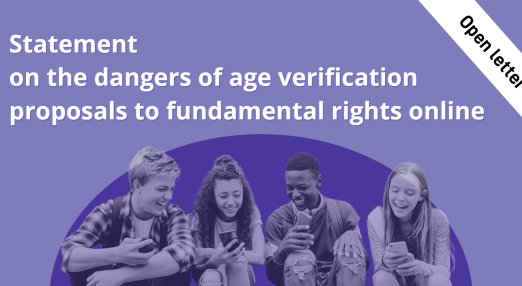
Open letter: The dangers of age verification proposals to fundamental rights online
On 16 September, EDRi and 63 organisations, academics and experts in privacy, encryption, child safety, sex workers' rights and consumer rights issued a joint statement urging the European Commission to prioritise effective child safety measures while expressing serious concerns about the suitability, proportionality, and negative impact on fundamental rights of current age verification proposals.
Read more
-

Between policy and reality: EDRi’s assessment of the implementation challenges in the troubled Terrorist Content Online Regulation
Since its enactment nearly two years ago, the so-called ‘Terrorist Content Online Regulation’ has faced scrutiny over its implementation and effectiveness. The EDRI network has contributed insights to the European Commission's Call for Evidence for its evaluation. We expressed significant concerns regarding potential violations of fundamental rights and the efficacy of its enforcement measures, advocating for the withdrawal of the regulation in favour of one that genuinely guarantees respect for fundamental rights.
Read more
-

The new EU Commission must address information power
Ahead of the European Parliament elections, ARTICLE 19 shares its recommendations for the new European Commission, urging it to strive for a more open information environment across the EU.
Read more
-

La Quadrature du Net takes legal action against the French government’s censorship of TikTok in New Caledonia
Through an emergency proceeding (reféré-liberté) filed last week, La Quadrature du Net asked the Conseil d’État (Council of State) to suspend French Prime Minister Gabriel Attal’s decision to block the TikTok platform in New Caledonia. With this censorship order, the French government struck an unprecedented and particularly serious blow to freedom of expression online, which neither the local context nor the toxicity of the platform can justify in a regime pretending to abide by the rule of law.
Read more
-

Win against Facebook. Giant not allowed to censor content at will
By blocking the accounts and groups of Społeczna Inicjatywa Narkopolityki (SIN, the Civil Society Drug Policy Initiative), Meta has infringed on the organization’s personal rights. A Polish court issued a watershed decision in a case supported by the Panoptykon Foundation, thereby confirming that Internet platforms cannot block users at will.
Read more
-
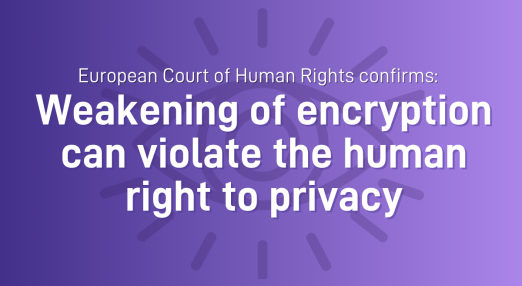
European Court of Human Rights confirms: weakening of encryption can violate the human right to privacy
In a milestone judgment - Podchasov v. Russia - the European Court of Human Rights (ECtHR) has ruled that weakening of encryption can lead to general and indiscriminate surveillance of the communications of all users and violates the human right to privacy.
Read more
-
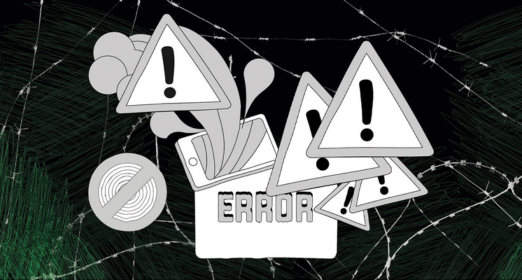
Meta must act: stop the systematic censorship of Palestinian voices
Meta’s continuous censorship of Palestine-related content in times of war is a systematic issue that the tech giant must immediately address. Access Now’s new report, It’s not a glitch: how Meta systematically censors Palestinian voices, delves into how the company silences the voices of Palestinians and those advocating for their rights on Facebook and Instagram.
Read more
-
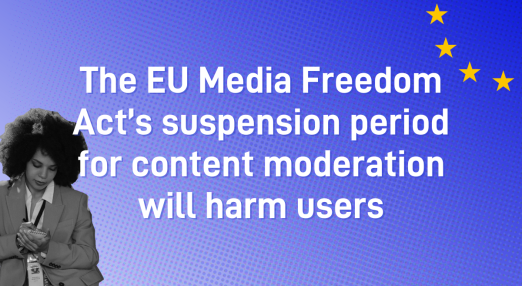
The EU Media Freedom Act’s suspension period for content moderation will harm users
In December 2023, the European Parliament and Member States’ representatives negotiated a controversial special status for media outlets in the European Media Freedom Act (EMFA): their content cannot be removed from big tech platforms for up to 24 hours, even when it violates community standards intended to protect users.
Read more
-
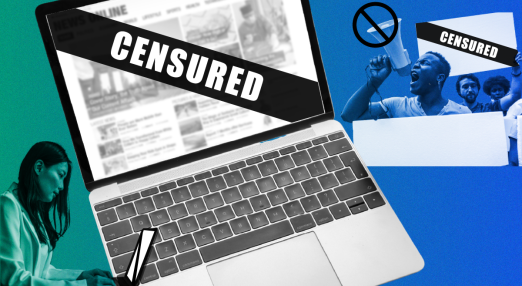
A coalition of six organisations takes EU’s dangerous terrorist content regulation to court
On 8 November 2023, a coalition of six organisations filed a complaint before the French supreme administrative court, the Conseil d’État, against the French decree implementing the Regulation on addressing the dissemination of terrorist content online.
Read more
